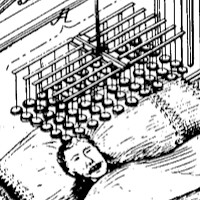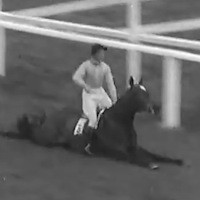Charles DeGaulle Dies November 9

Charles DeGaulle lived from November 20, 1890 to November 9, 1970. He dedicated his life to the military will be remembered as a powerful leader during World War II.
DeGaulle was born in Lille, France. His father was a school headmaster at a Jesuit school. DeGaulle was a good student educated in Paris. He grew to be a strapping young man—at 6 feet 5 inches.
After graduating the military academy in 1912 DeGaulle was commissioned as a second lieutenant. He was wounded twice during World War I and was promoted to captain by 1915. He was captured by the German Army on March 2, 1916 and was held as a prisoner of war for 32 months.
After the Armistice DeGaulle served in France’s Polish division and earned Poland’s highest military decoration. He began lecturing at the French War College and wrote books on military topics during the 1930’s. His views expressed in “The Army of the Future” and “France and Her Army” both caused turbulence with the military and politicians. He was taken off the promotion list after publishing “The Army of the Future”.
When the German forces overtook France the French government agreed to a truce with Germany. DeGaulle refused to accept the truce and fled to England. He formed a French “government in exhile” called the Free French and tried to persuade the French people to continue fighting against the German Army.
While still in England the French court marshaled him to four years in prison, and on August 2 he was court marshaled again and given a death sentence. Despite this, DeGaulle persisted with his crusade against Germany while many of his colleagues were arrested by Gestapo.
Franklin D. Roosevelt and Winston Churchill were not supportive of DeGaulle’s politics and did not include him in their plans, however, his provisional government was recognized by several other countries. By July of 1944 the US and Britain agreed that DeGaulle could help with liberated portions of France.
After the liberation of France in 1944 DeGaulle returned to France as a hero. He was unanimously elected head of the French government in 1945 and helped write the constitution that the Fourth Republic was based on. After being denied a stronger presidency he resigned a year later.
In 1958 there was a revolt in French Algeria that destroyed the Fourth Republic. DeGaulle returned to France again and was voted president of the Fifth Republic. He worked to strengthen his country’s military and economic status. He also sanctioned nuclear weapons and withdrew France from NATO.
In 1968 university students demonstrated violently and strikes followed. DeGaulle held elections and the country supported him ending the crisis. However, one year later he resigned his presidency after losing a referendum on a reform proposal.
He retired and completed his memoirs. He died of a heart attack on November 9, 1970.
DeGaulle was born in Lille, France. His father was a school headmaster at a Jesuit school. DeGaulle was a good student educated in Paris. He grew to be a strapping young man—at 6 feet 5 inches.
After graduating the military academy in 1912 DeGaulle was commissioned as a second lieutenant. He was wounded twice during World War I and was promoted to captain by 1915. He was captured by the German Army on March 2, 1916 and was held as a prisoner of war for 32 months.
After the Armistice DeGaulle served in France’s Polish division and earned Poland’s highest military decoration. He began lecturing at the French War College and wrote books on military topics during the 1930’s. His views expressed in “The Army of the Future” and “France and Her Army” both caused turbulence with the military and politicians. He was taken off the promotion list after publishing “The Army of the Future”.
When the German forces overtook France the French government agreed to a truce with Germany. DeGaulle refused to accept the truce and fled to England. He formed a French “government in exhile” called the Free French and tried to persuade the French people to continue fighting against the German Army.
While still in England the French court marshaled him to four years in prison, and on August 2 he was court marshaled again and given a death sentence. Despite this, DeGaulle persisted with his crusade against Germany while many of his colleagues were arrested by Gestapo.
Franklin D. Roosevelt and Winston Churchill were not supportive of DeGaulle’s politics and did not include him in their plans, however, his provisional government was recognized by several other countries. By July of 1944 the US and Britain agreed that DeGaulle could help with liberated portions of France.
After the liberation of France in 1944 DeGaulle returned to France as a hero. He was unanimously elected head of the French government in 1945 and helped write the constitution that the Fourth Republic was based on. After being denied a stronger presidency he resigned a year later.
In 1958 there was a revolt in French Algeria that destroyed the Fourth Republic. DeGaulle returned to France again and was voted president of the Fifth Republic. He worked to strengthen his country’s military and economic status. He also sanctioned nuclear weapons and withdrew France from NATO.
In 1968 university students demonstrated violently and strikes followed. DeGaulle held elections and the country supported him ending the crisis. However, one year later he resigned his presidency after losing a referendum on a reform proposal.
He retired and completed his memoirs. He died of a heart attack on November 9, 1970.

Related Articles
Editor's Picks Articles
Top Ten Articles
Previous Features
Site Map
Content copyright © 2023 by Carol Taller. All rights reserved.
This content was written by Carol Taller. If you wish to use this content in any manner, you need written permission. Contact Lane Graciano for details.







